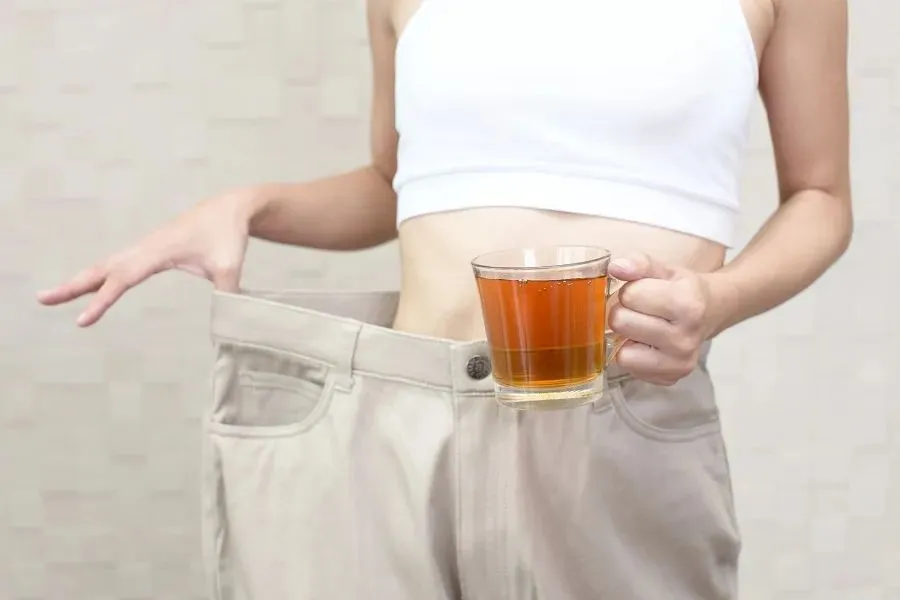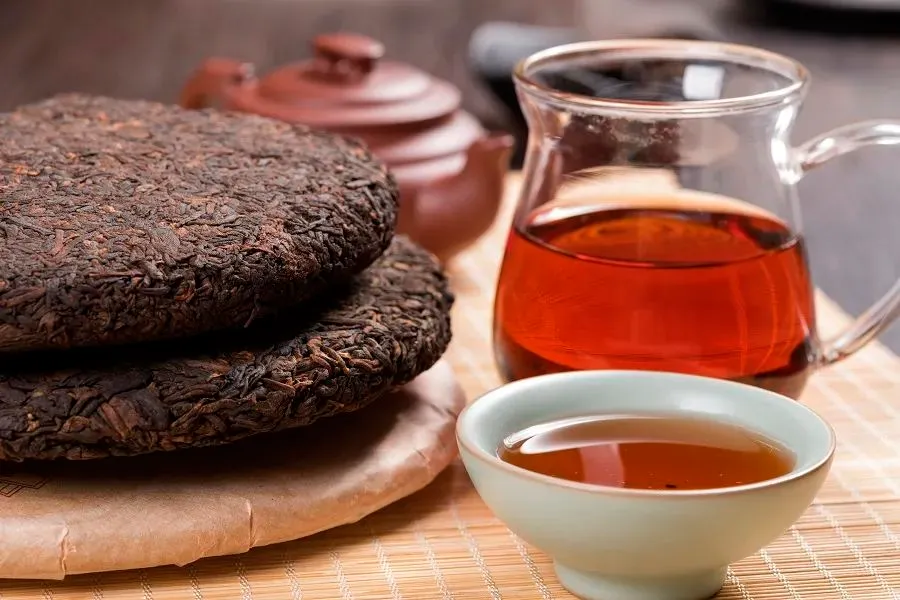
You may have heard that drinking tea can help “scrape off” the fat after a heavy meal. Many tea product advertisements claim that tea can clean the intestines, reduce fat, and help with weight loss. But can drinking tea really help you shed those extra pounds?
1. Can Drinking Tea Really Help with Weight Loss?
Some people believe that drinking tea after eating can help “break down” the fat in their meals. However, this is more of a perception than a reality. The fats you consume travel through the esophagus and stomach to the small intestine, where they are broken down with the help of bile and lipase. These fats are then absorbed into the bloodstream, and no tea can change this process or directly break down fats in your body.
While some studies suggest that the catechins in tea can boost energy expenditure and promote fat oxidation, results are varied and no definitive conclusions have been reached. Research has shown that tea consumption might be linked to lower waist circumference and BMI in obese individuals compared to non-tea drinkers . Other studies indicate that the effectiveness of tea in weight loss may vary with ethnicity, showing no significant weight change in overweight young adults but potentially affecting fat percentage .
To potentially achieve weight loss effects from tea, one would need to consume more than 500 milligrams of catechins daily. To put this into perspective, high-catechin tea contains about 160 milligrams of catechins per liter, meaning you would need to drink at least 3 liters of tea each day—a challenging feat for most people.
So, while drinking tea alone is unlikely to lead to significant weight loss or fat reduction, it can still be a beneficial part of your diet for other reasons.
2. Tea Can Make You Feel Better After a Heavy Meal
You might have noticed that drinking tea can make you feel less full or even hungrier after a big meal. This is because tea contains caffeine, theobromine, and theophylline, which can increase the secretion of stomach acid and digestive enzymes, making you feel like your meal has been “digested” faster. However, this sensation should not be mistaken for actual fat breakdown or weight loss.
Therefore, relying on tea to prevent weight gain after overeating isn’t advisable. Using tea as a strategy for weight control isn’t very effective either.

3. Benefits of Drinking Tea
While tea may not be a miracle weight loss solution, it does offer many health benefits. Tea is rich in polyphenols, caffeine, and polysaccharides, which have antioxidant, diuretic, and cognitive benefits. Regular tea consumption has been associated with a lower risk of coronary heart disease, stroke, and type 2 diabetes.
Moreover, tea is a low-calorie beverage, making it a great alternative to sugary drinks. It can also be used as a substitute for alcohol at social gatherings.
Here are two tips for drinking tea safely:
-
Avoid strong tea: High concentrations of caffeine and theobromine can irritate the stomach and cause insomnia or palpitations.
-
Avoid hot tea: The International Agency for Research on Cancer (IARC) has classified beverages over 65°C as possible carcinogens due to the increased risk of esophageal cancer from long-term consumption . Let your tea cool before drinking.
In conclusion, while tea won’t “scrape off” fat or drastically reduce weight, it remains a healthy beverage choice with various benefits. Enjoy your tea, but don’t rely on it as a magic weight loss tool.

